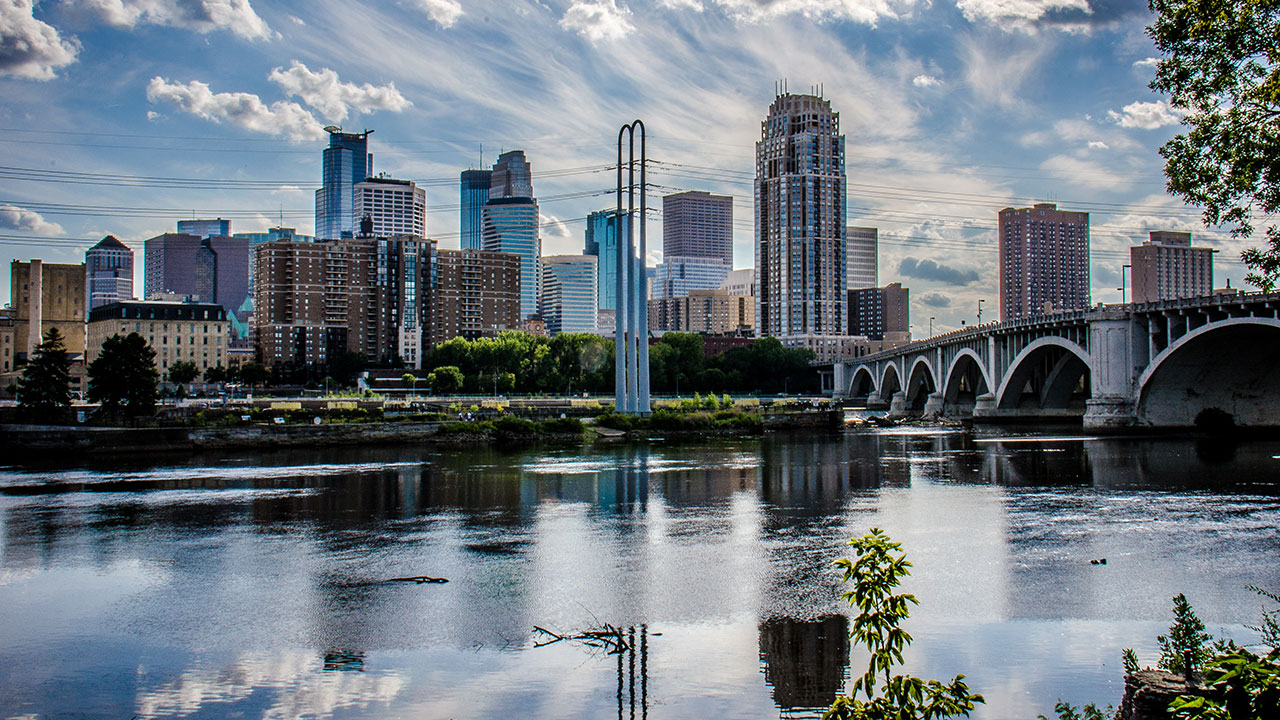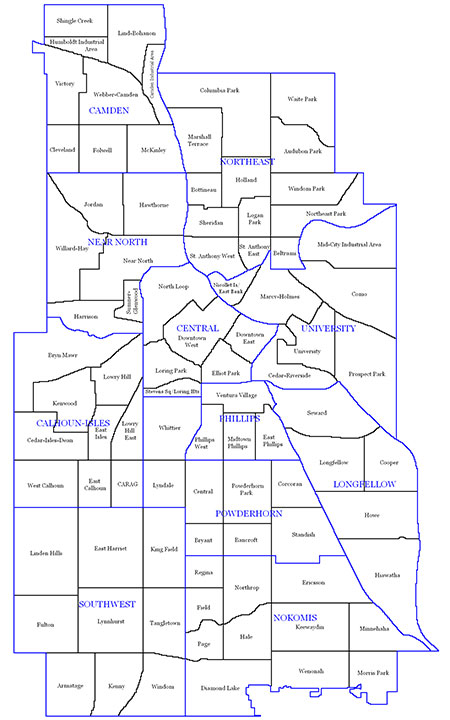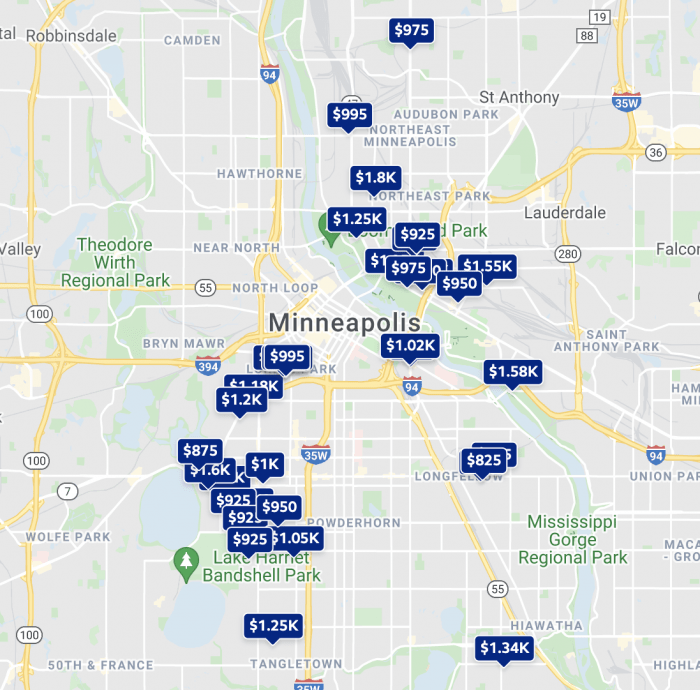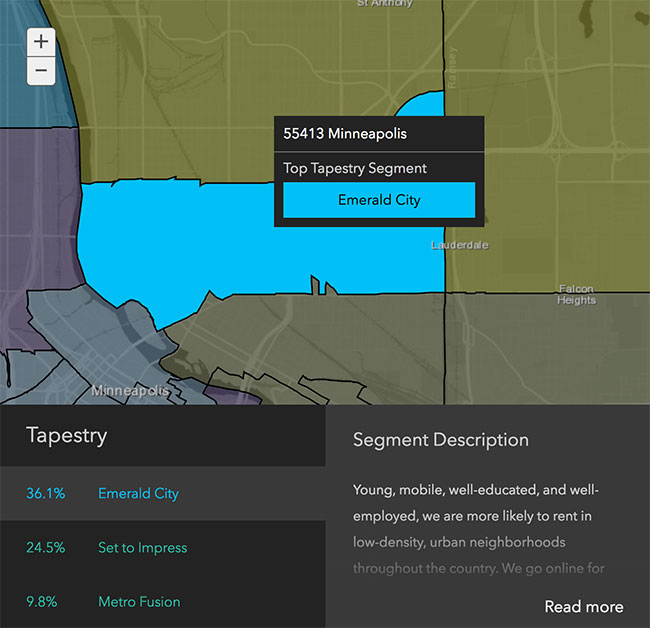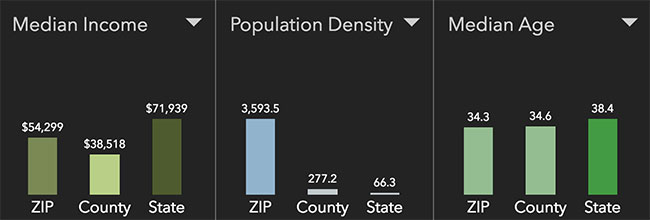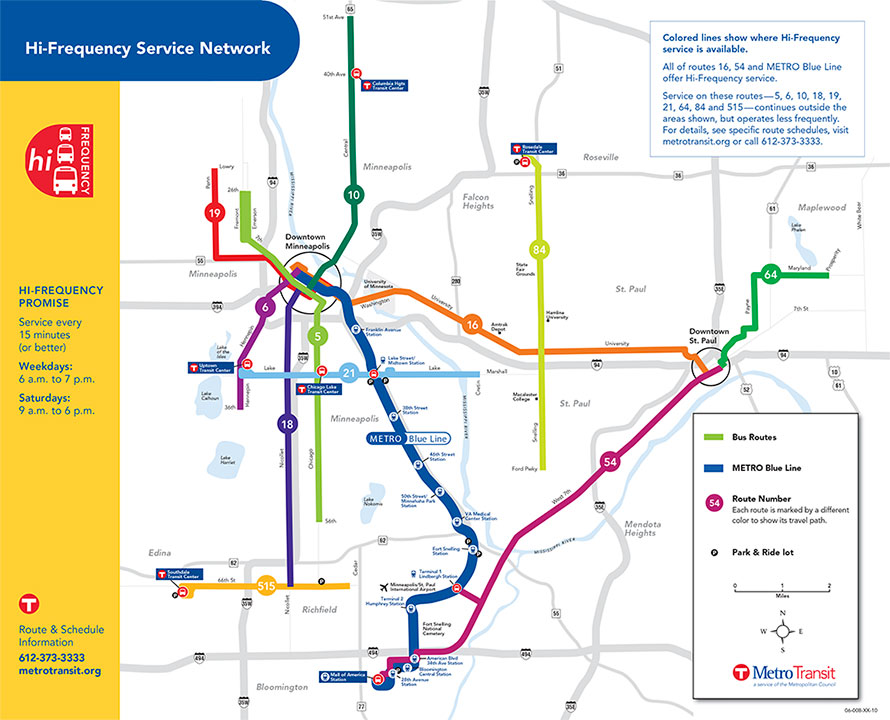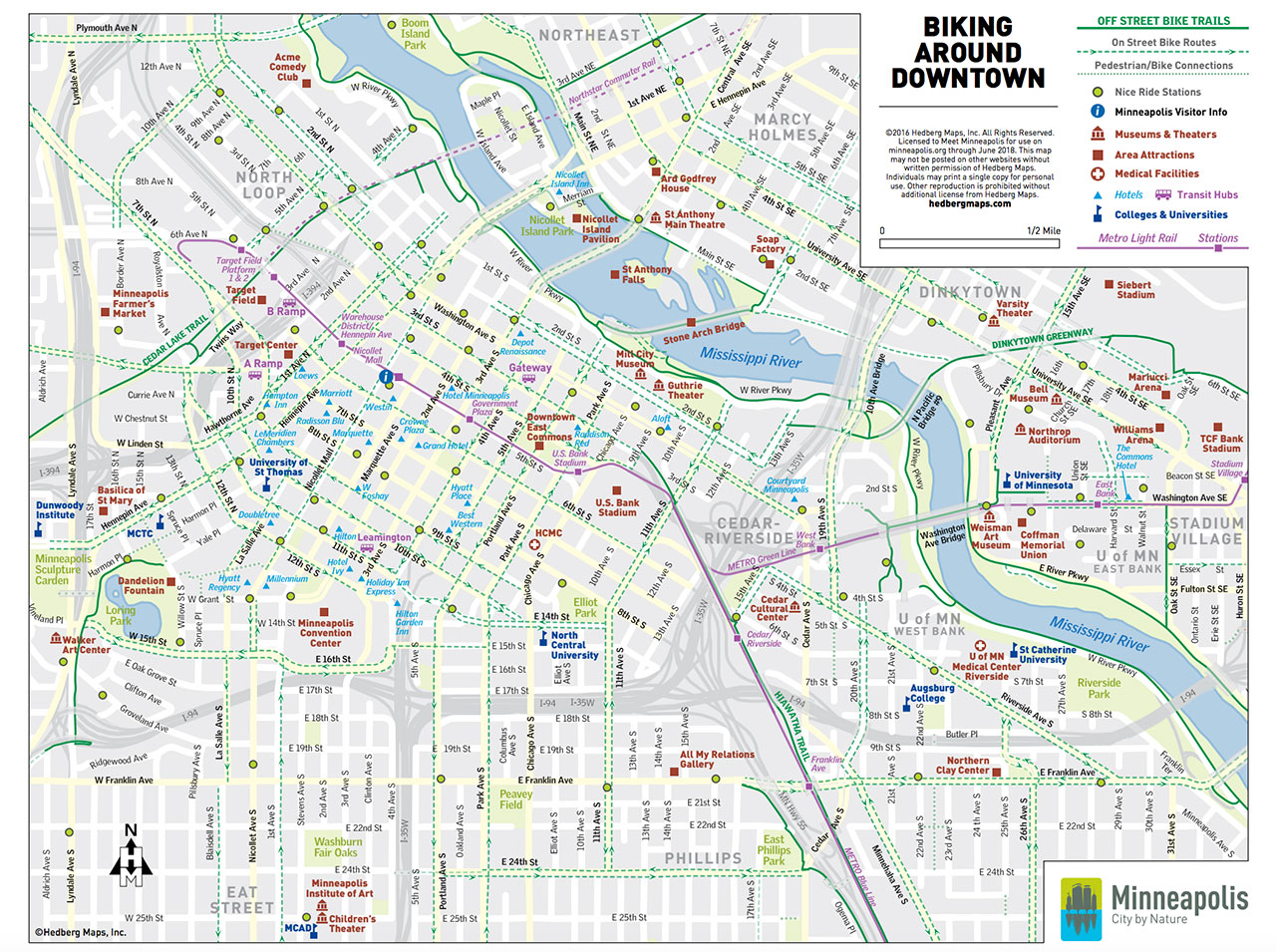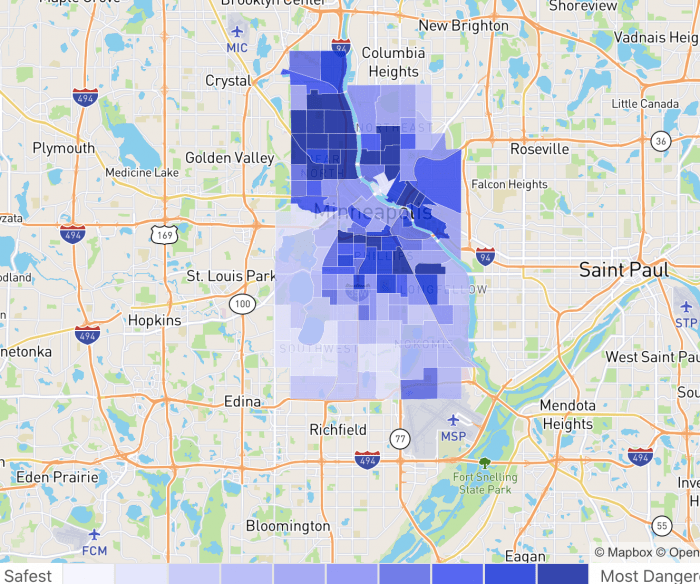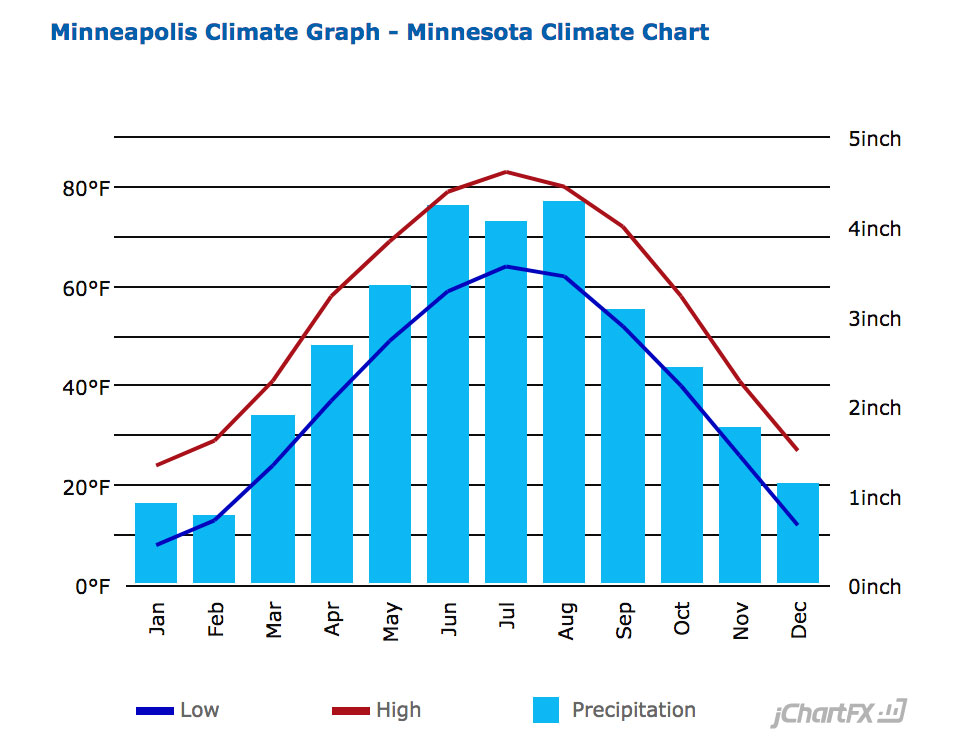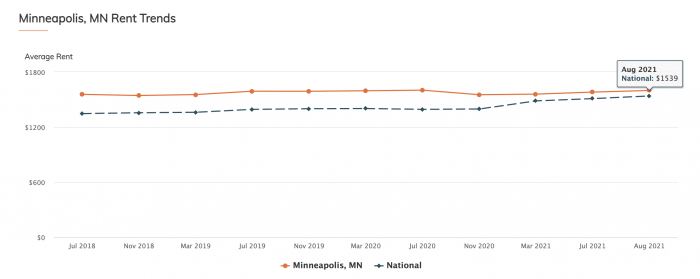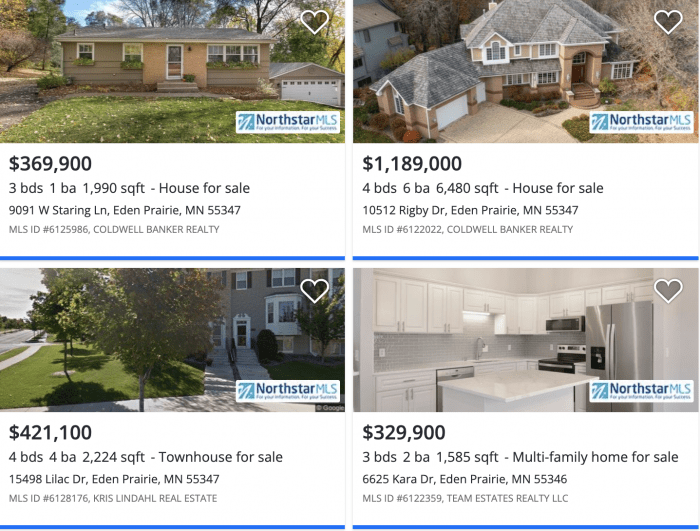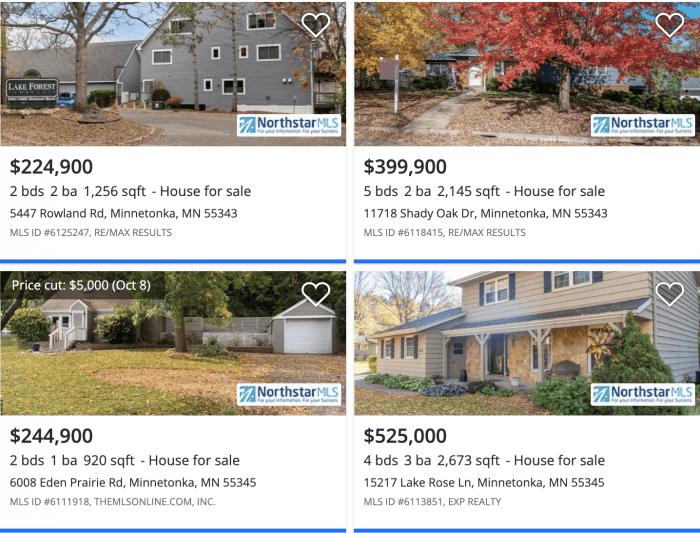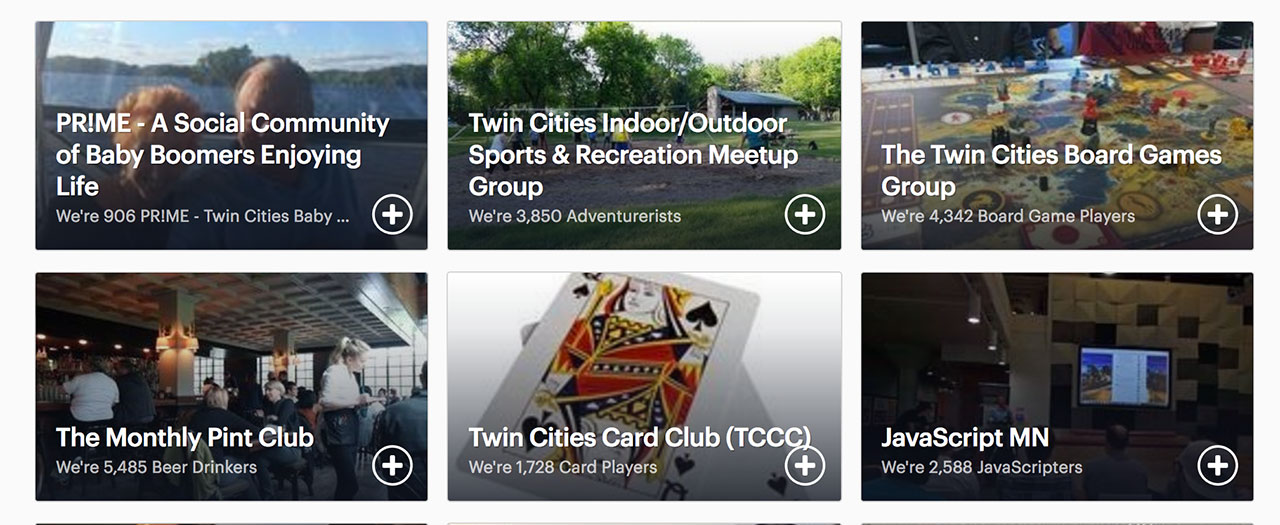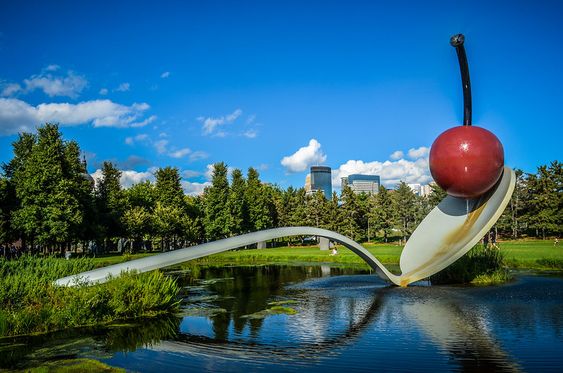Tips on Moving To Minneapolis, MN: Relocation Guide
Ice Fishing, the Mall of America, the Juicy Lucy If you like brews of both coffee and beer, want to be near a thriving tech scene, and don’t mind some frigid temperatures, you should consider moving to Minneapolis.
Photo Credit: m01129
The city of Minneapolis has surpassed its Twin City, Saint Paul, in both size and urbanization. It’s become a trendy spot for businesses and young professionals who want all the features of a large city with a heaping side of Midwestern heart and charm.
Moving to a city the size of Minneapolis can seem daunting. Fortunately, this guide is jam-packed with (almost) every bit of information you’ll need to know to make your decision.
MSP newbie? Keep reading. Already decided on relocating and ready to make the move? Get started on the right foot with our moving cost calculator.
And if you’re looking for even more info on moving to Minneapolis, check out our Minneapolis movers cost guide.
Everything about relocating to Minneapolis
- Which Minneapolis neighborhoods are most affordable?
- Which neighborhood in Minneapolis is the best fit for me?
- How long is the commute in Minneapolis?
- How’s the walkability, bikeability, and public transportation in Minneapolis?
- How dangerous is Minneapolis?
- Where can I find apartments and houses in Minneapolis?
- How much will it cost to move to Minneapolis?
- Don’t forget, all of these things need updating!
- What’s fun to do in Minneapolis?
And if you’re looking for more info on moving to Minneapolis, check out our Minneapolis move cost guide.
Quick Minneapolis snapshot
- Minneapolis’s population of 420,324 has it ranking as the 46th most populous city in the US.
- The average rent in Minneapolis as of 2021 is $1,599.
- The cost of living in Minneapolis is high enough for it to rank as the 15th most expensive city in the country.
Before getting too deep into things, check out this video of aerial footage exploring Minneapolis’s unique architecture and vibe.
How to move to Minneapolis
We suggest using our moving cost calculator to estimate how much your move to the City of Lakes will cost you.
Also, if you’re moving from another state, be sure to take a look at our moving guide for more info and tips.
If you’re moving somewhere that requires you to park on public property while unloading your stuff, you’ll probably need a parking permit. Here’s the link to apply for a Minneapolis parking pass so your move doesn’t cost any more than it needs to.
Now that that’s taken care of, here are a few things you’ll need to need to take care of after you’ve moved.
Parking permits for moving vehicles
And if you’re moving somewhere that requires you to park on public property to unload your stuff, you’ll probably need a permit.
Passes will cost you $0.50 – $1/ft/day depending on where in the city you’re parking.
Here’s the link to apply for a Minneapolis parking pass.
Minneapolis neighborhoods
The Minneapolis area is large and divided into quite a few neighborhoods, but here’s roughly how the city is carved up.
Downtown Minneapolis is situated diagonally along the Mississippi River. Every other part of the city is defined by its location relative to downtown.
South Minneapolis is located south of downtown, with Southwest Minneapolis acting as its core.
Uptown is known for being the newer, pricier part of the city and for being near the chain of lakes. In contrast, Northeast Minneapolis is known for its many breweries and historic St. Anthony Main.
Each region has several neighborhoods, each with its own vibe and cost of living, so let’s look at some rent pricing across the city.
Many highly-priced areas are densely clustered around the city’s center.
Here’s roughly what each area costs
As with most cities, many highly-priced areas are densely clustered around the city’s center.
- Those on a tighter budget should be able to find a one-bedroom to rent between $850 and $1,000 in neighborhoods like Hawthorne, Lyndale, Loring Park and Ventura Village.
- Neighborhoods such as Lowry Hill, East Calhoun and University fall more in the middle, with an average one-bedroom monthly rent around $1,000 to $1,300.
- The pricier, more upscale areas like Cedar-Riverside, Elliot Park, Nicolette Island, Downtown, West Calhoun and the North Loop will run you between $1,600 to $1,800 for a one-bedroom.
Where in Minneapolis are people like me living?
Everyone wants to feel like they’re a part of their chosen community, but deciding which one to choose can be the trick.
Fortunately, Esri’s Zip Tapestry tool makes things a bit easier.
To demonstrate, if we were to enter the zip code for Logan Park (55413), we’ll see a list of the three most prominent demographic subsections in the area. It’s as simple as that!
On top of fitting in with your neighbors, you should also make sure you’re reasonably close to work.
Commuting in Minneapolis
Minneapolis is great choice for those who don’t have (or don’t want) a car. However, driving is still the most popular way to get around due to the harshness of the Minneapolis winter months and the sheer expanse of the city. Minneapolis stretches out much more often than it does up.
According to the most recent Minneapolis census data, 61.4% of Minneapolis workers drive to work alone. Most people leave for work between 7:00 and 8:30 a.m. and spend roughly 5-34 minutes in transit.
Minneapolis also has some of the highest car insurance rates in the state.
So if you want to avoid driving, here are some other great options for getting around the city.
Despite the cold, Minneapolis is super walkable
With a walk score of 71, Minneapolis is a walker’s dream.
The only real impediment to walking around the city is the harsh Midwest winters, which you can easily avoid using the Minneapolis Skyway System to stay safe and warm year-round.
There’s a decent transit system.
Minneapolis also has decent public transportation, which is reflected in its above-average public transit score of 55.
This primarily consists of MetroTransit, which offers bus and light rail routes.
The bus routes typically cover the central area of the city, while the light rail is more helpful if you plan on traveling a bit further, such as to St. Paul or the Mall of America.
These services are excellent during peak hours with consistent and reliable routes. Still, finding late-night transportation can be difficult.
Minneapolis is extremely bikeable
Minneapolis has a phenomenal bike score of 83.
In fact, it’s the only U.S. city to ever have made an appearance on the Copenhagenize Design Co.’s worldwide index of bike-friendly cities.
The Midtown Greenway is a popular bike trail that connects the University of Minnesota to uptown and the surrounding park systems.
And along with knowing how to navigate the city, you should also learn which areas of Minneapolis are safest.
Minneapolis crime in context
We’re not going to sugarcoat it: According to NeighborhoodScout, Minneapolis a total crime index of 1 (100 is safest).
But keep in mind that more than 75% of crimes are property crimes rather than violent crimes.
Still, although the number of incidents may be high, so is the population. High crime rates don’t equate to imminent danger for you personally. All in all, most Minneapolis residents find the city pretty safe.
With all that basic information out of the way, let’s get into the critical task of finding a place to live.
Finding an apartment in Minneapolis
When apartment hunting, amenities should be your first consideration
As you’re probably aware, Minnesota has some legendarily harsh winters.
As you’ll be in for at least five months of sub-freezing temperatures, you’ll definitely need a heated apartment with solid insulation. Minnesotans are tough, but you’ll need more than hot dish to keep you warm.
You should also consider the weather when estimating your monthly utility costs so you can accurately budget for an apartment.
And even though the city’s impressively walkable, you’ll probably still want to find a place with its own washer and dryer so you don’t end up having to lug your laundry across town in a snowstorm.
Minneapolis apartment resources
Searching for just the right place to live can take time and effort, so we’ve narrowed down some of the best resources for Minneapolis apartments with options to tailor your search to your exact specifications.
Note: Although Craigslist can be a very useful site for finding apartments, this DOES NOT mean you should trust Craigslist implicitly. Here’s their own guide on how to recognize potential scammers.
Minneapolis rental market
The Minneapolis apartment scene is currently a landlord’s market, but things are (slowly) improving. And while the average rent in Minneapolis has increased steadily, the rate of increase is similar to the national average.
Minneapolis’s vacancy rate is quite low at just below 6%, but new apartment developments are on the rise, which should eventually help to fill demand.
Minnesota Rental Law
In a competitive rental market like Minneapolis, it’s essential to know your rights as a renter to avoid being scammed by shady landlords.
Now if you’re looking to buy rather than rent, the Minneapolis-St. Paul area has plenty of great suburbs in and around the metro area.
Minneapolis’s midwestern suburbs
Though Minneapolis may be a relatively large metropolitan hub, it’s still filled with plenty of idyllic Midwestern suburbs.
The average home value in Minneapolis is roughly $327,000, down 3.1% from 2022. Homes typically take about two weeks to go to pending.
Eden Prairie
Eden Prairie is one of the most full-featured suburbs in the Twin Cities area, offering tons of local businesses, parks and excellent schools, all within a fairly average price range.
Minnetonka
Minnetonka offers some pricier homes, which it justifies with a short commute, fantastic nightlife and its proximity to Lake Minnetonka, just one from the “Land of 10,000 Lakes.”
Your post move checklist
Before you get too settled in, take care of these last few logistical details to fully establish yourself as a Minneapolis resident.
- Register to vote: Voting is the easiest way for you to have a say in your community. Here’s how to register to vote in Minneapolis.
- Get your driver’s license: You’ll also want to update your ID with your new address. This is where to go to obtain your Minnesota driver’s license.
- Register your vehicle: If you choose to bring a car, you’ll need to update it with Minnesota plates and registration.
- Take care of your trash and recycling: Click here to learn all about waste management, recycling and composting in Minneapolis.
- Meet people and make new friends: One of the most challenging parts of moving to a new place is forging new connections and finding your community, but there are plenty of helpful resources to at least steer you in the right direction. Meetup is chock-full of activities for every type of interest imaginable, and r/Minneapolis is a solid way to keep up with events happening around town.
Things to do in Minneapolis
Reading this list of 150 things to do in Minneapolis on the city’s official travel site is a great first step toward learning what the city has to offer.
If you’re looking for more specific recommendations on where to find a good beer or cocktail, we recommend looking up some lists of the best Minneapolis bars. Minneapolis is also known for its thriving food scene.
If you’re a sports fanatic, you’re in luck. Minneapolis is home to several different teams, including:
- The Minnesota Wild: You’re not allowed to not like hockey in Minnesota. It’s, like, a law.
- The Minnesota Vikings: Good news, football fans—the Vikings’ reputation has vastly improved over the past couple years. Plus, U.S. Bank Stadium also hosts some excellent concerts!
- The Minnesota Twins: Enjoy a good ol’ American baseball game with a hot dog and beer at the famous Target Field.
- The Minnesota Timberwolves and Minnesota Lynx: As basketball lovers probably know, the Lynx are one of the best teams in WNBA history. Unfortunately, the Timberwolves are a slightly different story.
And of course, there are plenty of things to do for those who enjoy the great outdoors! Nature lovers will be delighted to discover that the Twin Cities park systems are ranked in the top five nationwide.
Take a short trip to nearby scenic Minnehaha Falls, spend an afternoon walking around the Minneapolis Sculpture Garden at the Walker Art Center, or peruse the selection of ethnic and local foods at the many popular outdoor farmers markets in the area.
No matter what you’re into, it’s hard to run out of things to do here!
Not what you were looking for?
Check out other categories that can help you find the information you need!
